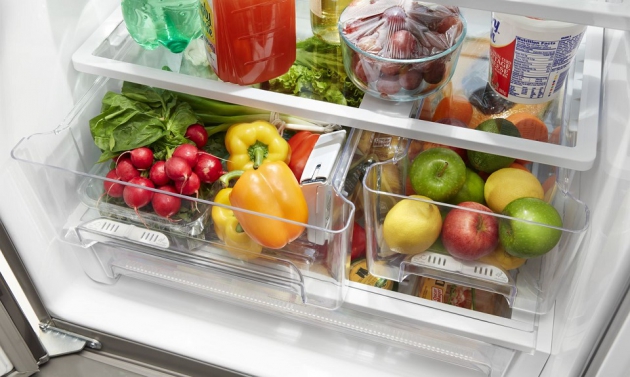As the holiday season approaches, many households tend to have more food in their home. When you’re struggling for space, you may ask yourself, is overloading the fridge or freezer such a bad thing? Here we’ll examine the consequences of overstocking your fridge and why you should avoid it in the future.
What Happens When You Overload Your Fridge?
Regardless of the size of your fridge, packing it to capacity can be bad for your food items and appliance. A good quality model can offer years of service, but if you don’t load it properly, you could find yourself with frequent repair issues within a couple of years.
There are a number of issues that can result from overloading your fridge that include:
- Damage to food: The first thing you are likely to notice is that your food products tend to have a shorter lifespan. If your fridge is packed with too many items for a longer period, those containers and packets can compromise the air circulation inside the appliance. This can not only cause an increase in the fridge temperature, but it can also encourage bacterial growth, which can put you at risk of stomach upsets if you consume them.
- Vent blockages: If you stuff your refrigerator shelves to the limit, you can block the vents that allow cold air to enter the unit. When the vents are blocked, the refrigerator motor and condenser will need to work harder for longer to maintain the desired temperature. This can lead to excessive wear and tear that could cause a burnout.
- Reduced energy efficiency: This follows on from the previous points, but if the airflow is compromised and the components need to work harder, the energy used by the appliance will increase. This reduced energy efficiency could drive the cost of your energy bills up, since your fridge is running 24/7.
Tips to Maximize Fridge Space
If you are worried about overstocking your fridge, there are some tips that can help you to maximize your fridge space.
Adjust the Shelves:
Most refrigerator models have adjustable shelves that allow you to move the shelves up or down. Rather than sticking with the initial installation, have a look at what you need to store and adjust the shelves accordingly.
For example, instead of laying bottles down taking up a full shelf, increase the shelf height to stand them up. This could free up over half a shelf where you can stack other items.
Rotate Foods:
Before you load your new groceries into the fridge, pull the older items forward. This can be a good reminder of what you need to use now. Rotating your food can help inspire you for a leftovers meal that will clear some space.
Decant into Smaller Containers:
If you have used some food, leaving it in a large container can not only take up valuable space but can compromise the lifespan of the food item. Allowing excess air in a container exposes the food, which may reduce freshness. So, if you have opened a large container of cream cheese, yogurt, or other items, transfer it to a smaller tub to save space and maintain freshness.
Stack Like Items Together:
Many food containers are designed to be stacked to make attractive displays in grocery stores. So, you can make use of this in your refrigerator. By stacking items together you can save space and also keep track of what you have. It makes it easy to see that you have three or four containers, rather than needing to search the entire fridge to find what you have.
If your fridge is lacking space for your day to day requirements, it may be time for an upgrade. You can explore your options with our online refrigerator collection or speak to one of our team members for expert help and guidance.

